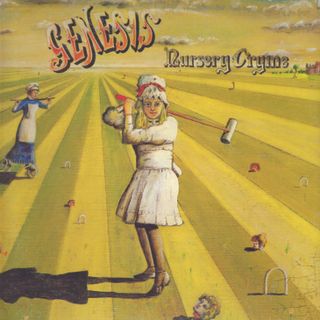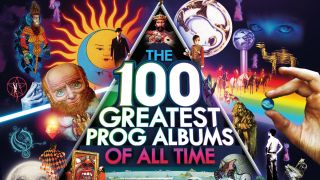Five years ago when Prog magazine (but certainly not progressive music) was in its infancy, we asked readers to vote for their 50 top prog albums of all time. Now, as we approach our 50th issue, we’ve gone back to see how the landscape has changed, asking readers and musicians to help us compile a list of the 100 greatest prog albums of all time. We were inundated with Top 10s from all over the world and we are proud to present the list for your perusal. Is it still the same, or have old favourites been ousted in place of young upstarts? And who is Number One?
60
Tubular Bells
**MIKE OLDFIELD **(Virgin, 1973)
We say: Mike Oldfield’s groundbreaking debut album. It’s one of the most recognised and celebrated albums of the era, and it became a cornerstone of 1970s music.
You say: “Whenever I listen to this album, I still can’t get my head around a young kid with such ability to create and make such mesmerisingly beautiful music. Absolutely stunning. A true one-off original.” – Mike Landsberry
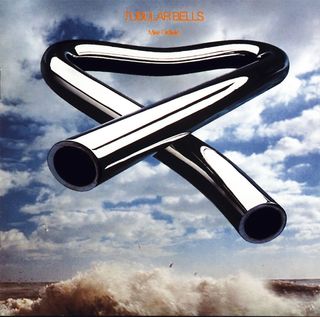
59
Weather Systems
**ANATHEMA **(Kscope, 2012)
We say: Released in 2012, Weather Systems was Anathema’s ninth album and it was created to emotionally move the listener. The depth and quality of the record ensured it elevated the band’s status.
You say: “Anyone who ever tells you that progressive music is soulless, or merely substance over style, has clearly never heard Anathema. And they’ve never been quite as emotive as they are on Weather Systems.” – Jill Reading

58
Moon-madness
**CAMEL **(Gama/Decca, 1976)
We say: Camel’s 1976 album. Not only the last to feature the band’s original line-up, but also a highly personal album, as each track is based around one member’s personality.
You say: “Camel’s most accessible and musical album. Following hard on the heels of the epic The Snow Goose, Moonmadness is actually more loaded, progressive and complex than its predecessor. A must for any prog fan.” – Carl Coppage
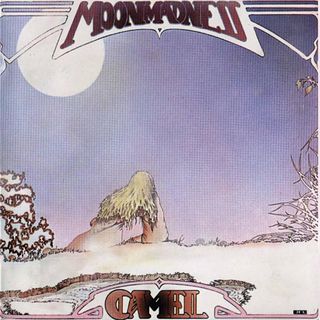
57
Crack The Skye
**MASTODON **(Reprise, 2009)
We say: Mastodon’s 2009 album, it has the blood and thunder from previous releases, but takes everything to a new musical level. A restive and sophisticated piece of work from the prog heavyweights.
You say: “A brilliantly executed concept album that leaves the band’s harsher metal sound behind and fully immerses itself in fresh progressive waters. A total triumph.” – Mike Edwards
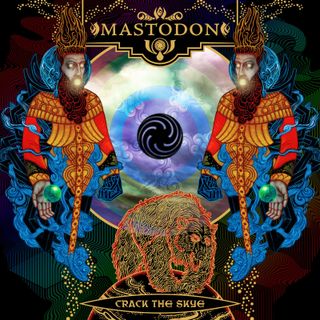
56
Acquiring The Taste
**GENTLE GIANT **(Vertigo, 1971)
We say: Gentle Giant’s second album from 1971. Out went the blues and soul taste of their debut and in came more exhaustive career-defining experimentation.
You say: “Gentle Giant’s most interesting album in some respects: weird R&B elements, early heavy metal touches and strange, jazzy, cacophonous vocal harmonies all mix together uneasily, yet with curious, compelling force.”** – Ragna Rok**
55
Journey To The Centre Of The Earth
**RICK WAKEMAN **(A&M, 1974)
We say: Rick Wakeman’s unique perspective on the classic Jules Verne novel. Released as a live album in 1974, and revisited in the studio last year.
You say: “It’s a live album but you never think of it as being a live album. Rick’s mastery of creating wonderful sonic vistas to accompany and propel his story are quite fantastic.”** – Jacques Favalier**
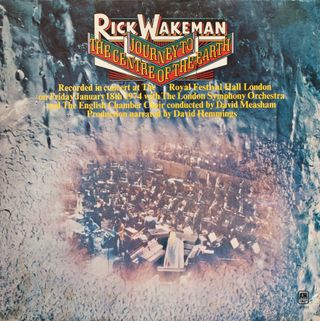
54
The Mountain
**HAKEN **(InsideOut, 2013)
We say: Haken’s third album elevated the band’s status as they showed a capacity for individual expression that had a charismatic cohesion.
You say: “Haken burst on to the scene a few years ago and showed everyone that the genre wasn’t dead. With a dash more humour and more 70s influences than many others, they really are one of the best bands around today!” – Auguste Nahas
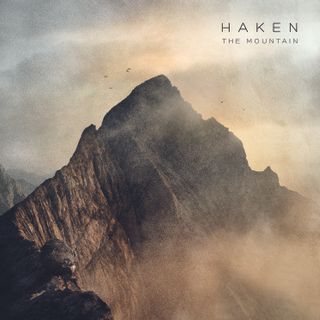
53
A Farewell To Kings
**RUSH **(Mercury, 1977)
We say: Rush’s 1977 album saw the band moving on from 2112, its predecessor. The cosmic reach was still there, but the trio were now expanding their musical and lyrical horizons.
You say: “Rush at their progressive peak, combining rich, lyrical passages and emphatically far-reaching musicality, such as on Xanadu, as well as displaying a penchant for being able to wrap everything up in a delightfully nice little package, such as on Closer To The Heart.” – Michel Agasee
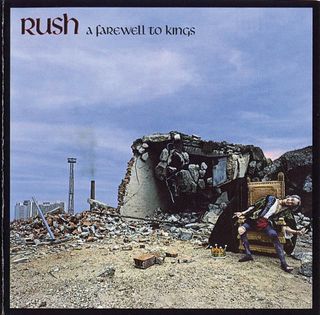
52
Marbles
**MARILLION **(Racket, 2004)
We say: Marillion’s 2004 exercise in laying bare their love of Pink Floyd, while also striding formidably into the 21st century. Erudite, rousing , massively entertaining and almost a career changer.
You say: “An album that in its dual format is even better, with finely progressive contributions such as The Invisible Man, Ocean Cloud and Neverland, as well as more immediate moments, such as You’re Gone.” – Francisco Hernández

51
Mirage
**CAMEL **(Gama/DeRAM, 1974)
We say: This was only Camel’s second album yet Mirage features some of the band’s best-loved songs, and created an atmosphere of peculiarly English eccentricity that was to become their hallmark.
You say: “The cover to this lovely album drew me in, and I don’t even smoke! And the epic Lady Fantasy reduces me to tears almost every single time. Terrific stuff.” - Jane Shepherd

50
Grace For Drowning
**STEVEN WILSON **(Kscope, 2011)
We say: Steven Wilson’s second solo album was an expression of joy for what could be done in an album format, the fullest representation of musical freedom. It even got a Grammy nomination.
You say: “In my humble opinion, the best of Steven’s solo output to date. He humbly says it’s just songs about trains and serial killers, but to my mind it’s so much better than that.” – Rebecca Lancaster

49
A Passion Play
**JETHRO TULL **(Chrysalis, 1973)
We say: Jethro Tull’s sixth album was conceptual, based around one person’s journey in the afterlife, conceived as a play. Bold and theatrical.
You say: “I know a lot of people who don’t like this album, but they seem to base that on the fact that it followed up the brilliant Thick As A Brick. I’ve always loved the music, the concept and especially The Story Of The Hare Who Lost His Spectacles.” – Mike Blackburn
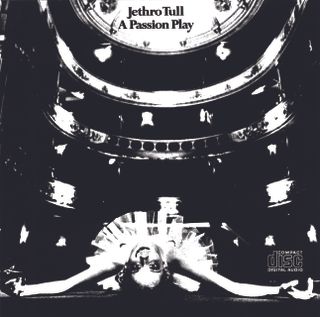
48
The Incident
**PORCUPINE TREE **(Roadrunner, 2009)
We say: Released in 2009, this album got Porcupine Tree a Grammy nomination. It’s essentially one sub-divided track, proving the band were still refusing to be predicable.
You say: “My gateway to real prog. I’ve always been a fan of mainstream prog, but this band slung me deep into it. They are how I found Prog mag and many other great bands.” - Jeff Brousseau
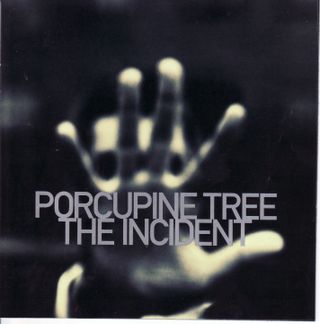
47
Clutching At Straws
**MARILLION **(EMI, 1987)
We say: Marillion’s final album with Fish. The record is conceptual, based on the despondent character of Torch. A darkly depressing yet spellbinding work. A landmark.
You say: “Their last album with Fish but the one with him the resonates the best with me. Misplaced Childhood may have been more successful but I find the songs here far more emotive and powerful.” – Liv Peters
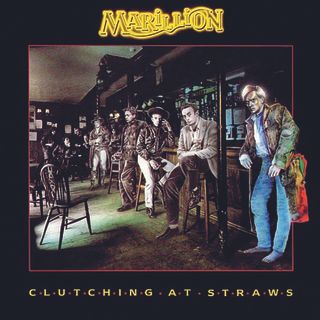
46
Ghost Reveries
**OPETH **(Roadrunner, 2005)
We say: Released in 2005, this was a partially conceptual album, with Satanism as its theme. It’s now regarded as one of the defining albums of 21st-century progressive metal.
You say: “This may be my favourite metal album of all time and its array of different musical elements and ideas gives it a well-deserved home in the annals of prog history too. Opeth brought a much heavier approach to their songwriting, blending really heavy death metal elements with lighter folk-tinged passages and, later on, full-on prog-rock freak-outs.”** – Dean Barrett**
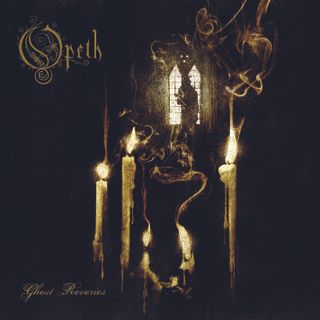
45
Colors
**BETWEEN THE BURIED AND ME **(Victory, 2007)
We say: Between The Buried And Me found their range and musical mobility here. Aside from metal, it has influences from jazz and pop. It’s an album that encompasses differing styles but has an irresistible dynamic.
You say: “Many people say that music nowadays just isn’t ‘good’. This album proves them all wrong, showing that modern prog can be even more sophisticated, technical, melodic and obscure than its predecessors. It’s the most successful blend of extreme metal, jazz, pop and even country that I have ever heard.” – Shintaro

44
Wind & Wuthering
**GENESIS **(Charisma, 1976)
We say: The album that marked the end of another era for Genesis. It was Steve Hackett’s farewell, and the band seamlessly straddled commerciality and progression.
You say: “A very underrated album. A melancholy, autumnal feel and the best of Collins-era Genesis.” – John Goldthorpe
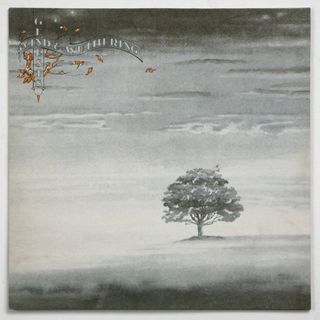
43
Aqualung
**JETHRO TULL **(Chrysalis, 1971)
You say: The ‘no, it’s not a bloody concept album’ album from Jethro Tull. It remains the band’s biggest and most acclaimed record, and it’s stuffed with classics like Locomotive Breath and Cross-Eyed Mary.
You say: “Some songs are heart-achingly beautiful, some songs make you want to grab your guitar and play along. An album full of inspiration and nostalgia.” – Laura Tolvanen
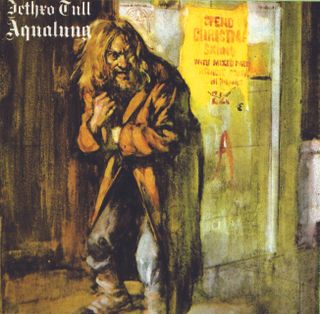
42
Trilogy
**ELP **(Island, 1972)
We say: ELP ran the gamut from classical to folk and country on their third album. It spun a virtuoso web around well-defined, easily accessible themes. More pomp than pompous.
You say: “Can’t exclude this one. It has meant so much to me over the years and songs like_ The Endless Enigma_ and Trilogy showed the fantastic dynamic, solemn and diversified sides of the band.” – Emil Mickols
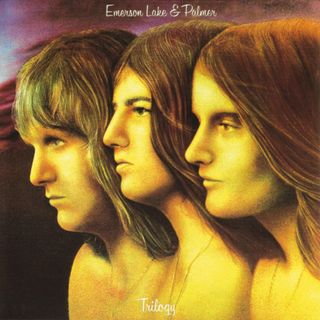
41
Nursery Cryme
**GENESIS **(Charisma, 1971)
We say: The first Genesis album with what many would regard as the classic line-up. Imaginatively structured, songs like The Musical Box and The Fountain Of Salmacis are rightly deemed classics.
You say: “The Musical Box has a lot to do with Nursery Cryme’s place on this list. Genesis know how to create enormously dynamic pieces and nothing exemplifies that more than The Musical Box.” - Kyle Nations
